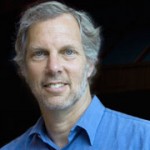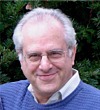Robert Pollin, economics and co-director of the Political Economy Research Institute, is interviewed about why federal stimulus funding and deficit spending are not creating inflation. He also says austerity now would weaken the already fragile economic recovery. (The Real News Network, 9/24/10)
Month: September 2010

M.V. Lee Badgett, economics and director of the Center for Public Policy and Administration, says same-sex couples suffer an even larger “marriage penalty” than heterosexual married couples. Congressional Republicans say if they gain control of Congress, they plan to get rid of the marriage penalty, but because they don’t support same-sex marriage it’s unlikely they would extend that effort to gay and lesbian married couples. (Keen News Service, 9/23/10)
Wolff on NPR’s All Things Considered

Rick Wolff, UMass Amherst economics professor emeritus, discusses socialism on NPR’s All Things Considered. Wolff explains that socialism has changed significantly in the last 50 years. Socialists now believe that the government shouldn’t own everything and they advocate for employee-owned businesses that would function as a cooperative. “Groups of workers make the decisions: what to produce, how to produce, where to produce, and what to do with the profits that are generated.” Listen to the audio…
Is The U.S. Moving Toward Socialism? A Socialist Weighs In
The upcoming elections will be decided in large part based on what voters think about economics. So Planet Money is looking into the economic thinking behind much of today’s politics.
We’re going to start today with socialism.
Now, with the notable exception of Vermont Senator Bernie Sanders, no major figure in American political life identifies as socialist. Certainly no serious contender for national office this November does.
But socialism has become a large part of the discussion, with many conservative activists arguing that the nation may be “on the road toward a more socialist agenda,” as Sarah Palin said this summer.
There is no evidence that President Obama or any leading Democrat is an avowed socialist. But we did think it would be worth digging a bit deeper into socialism and finding out what a socialist government in the U.S. might look like.
Right now, the governments of Spain, Portugal, Greece, are headed by socialists. In the recent past, the UK, France, Canada have all been led by socialists. Most countries have an active socialist party; socialism is just one more mainstream way of thinking — on talk shows, on political debates, in the papers.
I talked to Richard Wolff, a real life American socialist — a Marxist Socialist, even — who is professor emeritus of economics at University of Massachusetts.
He says that in the 1950s, the U.S. banned socialism from polite discourse.
“That meant we have now about two generations worth of people who never really engaged that topic,” he says. “It produces both an inability to understand what socialism [and] a gut level rejection and hostility to it.”
And, he says, it produces ignorance of what socialists think these days. Most Americans, he says, think that socialism died alongside the Soviet Union and the shift towards capitalism in China.
“They don’t know that, of course, the experience of Russia and China has also affected socialists,” Wolff says. “Over the past 50 years, socialism has changed, dramatically, in every way.”
For example, he says, socialists now say the government shouldn’t own everything. You can own your house, your car, even your own business.
But, he says, socialism is not capitalism.
Take how companies work. In capitalism, large companies are typically owned by shareholders, directed by a board, and run by a small number of managers.
Most workers simply work in exchange for a paycheck. Under socialism, many companies would be owned by the workers and would function as a cooperative.
“Groups of workers make the decisions: what to produce, how to produce, where to produce, and what to do with the profits that are generated,” Wolff says.
The Democrats’ health-care reform and stimulus spending came nowhere near the socialist vision, Wolff says.
A truly socialist government would instantly provide free health care to everyone and government jobs programs to employ every single out of work American — along with a host of other government programs that, these days, it’s hard to imagine the U.S. government being able to afford.
Strangely (or, maybe, not so strangely) Wolff says he loves it every time he hears the word socialism in the media, even if it’s out of the mouth of an angry and possibly poorly informed critic.
He says that for the first time in a long time, socialism is — sort of — back in the public discourse.
For more: See Wolff’s web site.

Jeannette Wicks-Lim ’05 PhD, Political Economy Research Institute, writes a column about the need for a green jobs program to provide employment and to counter pollution and reliance on fossil fuels. (Dollars & Sense, Sept./Oct. issue)
We Need a (Green) Jobs Program
Clean-energy investment would promote job growth for a wide swath of the U.S. workforce.
By Jeannette Wicks-LimFourteen months of an unemployment rate at or near 10% clearly calls for the federal government to take a lead role in job creation. The White House should push its clean-energy agenda as a jobs program but steer clear of all the hype about “green-collar” jobs. Green-collar jobs are widely perceived as job opportunities accessible only to an elite segment of the U.S. workforce—those with advanced degrees, such as environmental engineers, lab technicians, and research scientists. Such jobs are inaccessible to the 52% of unemployed workers with no college experience. The truth is, however, that clean-energy investments could serve as a powerful engine for job growth for a wide swath of the U.S. workforce.
My colleagues at the Political Economy Research Institute and I examined a clean-energy program that includes making buildings more energy efficient, expanding and improving mass transit, updating the national electric grid, and developing each of three types of renewable energy sources: wind, solar, and biomass fuels. Here’s what we found. Read more…

Robert Pollin, economics and co-director of the Political Economy Research Institute, comments in the Huffington Post story, “20 Ways to Put America Back to Work Again.” The story discusses why unemployment continues to be the overriding political and economic issue right now. According to Pollin, “Doing something about jobs is everything — and it should have been everything from day one.” He also says the current high level of joblessness is casting a pall on everything and is creating a “negative feedback loop” for the Obama administration and members of Congress trying to deal with the problem. (Huffington Post, 9/21/10)

Nancy Folbre, economics, writes a column in the New York Times Economix blog about how the cash-welfare program for needy families with children is inadequate and growing more so as the numbers of poor children grows due to the economic downturn and high unemployment. (New York Times, 9/20/10)
September 20, 2010
For Needy Families, a Needy Program
By NANCY FOLBREBut the inadequacies of the needy-families program have also contributed to the deterioration of economic conditions among the very young.
Temporary Assistance for Needy Families, our nation’s primary cash-welfare program for families with children, would more accurately be named Inadequate Assistance for Needy Families.
The latest Census Bureau estimates show that an additional 2.1 million children officially entered poverty between 2007 and 2009, as the poverty rate among children rose to 20.7 percent from 18 percent.
This comes as no surprise, given increases in unemployment over these years, from 4.6 percent in January 2007 to 10 percent by December 2009 (declining only slightly to 9.6 percent in August 2010). Read more…

UMass Amherst Economics Ph.D. student Grace Chang was among 120 students across the U.S. selected for the prestigious STAR (Science to Achieve Results) dissertation fellowship from the United States Environmental Protection Agency (EPA). The EPA STAR fellowship provides $111,000 of support over three years. Ms. Chang will use the funds to study environmental justice in exposure to industrial toxics in the United States.
Ms. Chang will use a unique new dataset from the Risk-Screening Environmental Indicators (RSEI) project of the EPA to examine the social, economic, temporal, and geographic structure of exposure to industrial toxic releases in the United States.
Ms. Chang states, “My main focus is the health risk affecting low-income people and communities of color that are disproportionately exposed to industrial toxics. My work should be useful to environmental justice scholars, community activists, and socially responsible managers and investors.”
The goal of the research is to improve understanding of the dynamics of neighborhood environmental inequality, with broader impacts in public policy, community health, and corporate environmental performance. Chang works with the Corporate Toxics Information Project based at the Political Economy Research Institute and co-directed by UMass Amherst Professors James K. Boyce and Michael Ash. Ash comments, “Grace has developed a terrific project, and her selection demonstrates EPA’s increased attention to questions of social justice and equity in environmental protection.”
EPA created the STAR fellowship program in 1995 to help the U.S. cultivate outstanding researchers in environmental science, engineering, and policy. STAR fellowships bolster the environmental generation of tomorrow, build a bridge to diverse communities, and boost excellent research and development that advance the protection of human health and the environment.
Folbre blogs about jobs in New York Times

Nancy Folbre, UMass Amherst economics professor, writes in her weekly blog at the New York Times about what level of job growth is actually needed by the U.S. economy. She also looks at the relationship between available jobs and job seekers. (New York Times, 9/13/10)
What’s the best stimulus? Pollin weighs in

Robert Pollin, economics and co-director of the Political Economy Research Institute is among a group of prominent national economists asked about what will work to stimulate the U.S. economy. Pollin says the government needs to help make credit easier and more affordable for small business. (MSNBC.com, 9/8/10)

Rick Wolff, UMass Amherst economics professor emeritus, will give a talk titled, “The Continuing Economic Crisis: Why Bailouts Failed, What Needs to be Done” and sponsored by the New Haven Green Party. This event will be at the Unitarian Society of New Haven and is scheduled for Thursday, September 23rd. Doors will open at 6:30 pm. For more information, please visit: http://www.newhavengreenparty.org/communitycalendar.html.